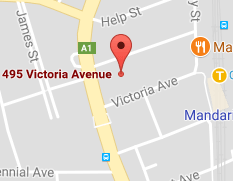Welcome to our December 2023 edition of the StewartBrown newsletter. Below are several important points to note as we close out the calendar year from a tax and business perspective.
Click here to download a PDF copy of the December 2023 StewartBrown newsletter.
STEWARTBROWN – CHRISTMAS CLOSURE

We advise that the StewartBrown offices will be closed during the holiday period as follows:
Office closes from 5.30pm Wednesday, 20 December 2023Office reopens on Monday, 8 January 2024
The Partners and staff of StewartBrown take this opportunity to wish all our clients and business associates a very merry Christmas and a joyful New Year.
FRINGE BENEFITS TAX AND CHRISTMAS PARTIES
It is that time of year again and we thought a reminder on the tax consequences of Christmas celebrations and gifts would be timely. Income tax, FBT and GST are all relevant considerations where these costs are involved.
Christmas parties
The tax consequences will depend on a number of factors including the following:
- whether the employer is a tax-paying body, tax rebatable or tax exempt
- whether the party is held at your business premises or off-site
- the cost per person
- the fringe benefits tax method used by the employer (actual or 50/50 split method)
- whether or not the minor benefit rule applies where food and drink at the function is less than $300 per head (i.e. the benefit is an “exempt benefit”). (N.B. Where the minor benefit rule applies to entertainment expenditure, the employer will not be entitled to claim a tax deduction or to claim GST input tax credits in respect of the expense).
- who attends the party (clients, employees, associates of employees)
To determine the tax consequences, employers need to identify all function-related costs.
Christmas party held on the employer’s premises
A Christmas party held on the employer’s business premises will be treated as follows for the various attendees:
Employees: exempt from FBT and not deductible for income tax. GST input tax credits cannot be claimed. Associates of employees: subject to FBT and deductible for income tax. If FBT applies, GST input tax credits can be claimed. However, if the cost of the food and drink is less than $300 per person, the minor benefit exemption can apply. If the exemption applies, no tax deduction will be allowed and GST input tax credits cannot be claimed. Non-employees/non-associates: not subject to FBT, no tax deduction and GST input tax credits cannot be claimed.
Christmas party held off-site
A Christmas party held at restaurants or similar venues will be treated as follows for the various attendees:
Employees and associates of employees: The expenditure will be subject to FBT and deductible for income tax. If FBT applies, GST input tax credits can be claimed. However, if the cost of the food and drink is less than $300 per person, the minor benefit exemption can apply. If the exemption applies, no tax deduction will be allowed and GST input tax credits cannot be claimed. Non-employees/non-associates: The expenditure will not be subject to FBT, there will be no entitlement to a tax deduction and GST input tax credits cannot be claimed.
Christmas travel and accommodation provided in connection with Christmas parties
The definition of “provision of meal entertainment” includes accommodation or travel in connection with providing entertainment. Travel and accommodation costs incurred in connection with the Christmas party must be included by the employer as part of their meal entertainment expenditure.
Recreation provided at Christmas parties
Recreation expenditure (eg live shows, theatre etc.) must be separated from the meal entertainment expenditure as it may have a different FBT treatment to the meal entertainment expenditure. You need to use the actual method to deal with recreation expenditure, as follows:
Employees and associates of employees: The expenditure will be subject to FBT and deductible for income tax. If FBT applies, GST input tax credits can be claimed. However, if the cost of the recreation is less than $300 per person, the minor benefit exemption can apply. If the exemption applies, no tax deduction will be allowed and GST input tax credits cannot be claimed. Non-employees/non-associates: The expenditure will not be subject to FBT, there will be no entitlement to a tax deduction and GST input tax credits cannot be claimed.

Christmas gifts
Again, the tax treatment will depend on:
- the recipient of the gift
- if the gift is provided at the Christmas party
- whether the gift is in the nature of entertainment
- whether or not the minor benefit rule (less than $300) applies
Gifts provided at the Christmas party to employees
Where a Christmas gift is provided to an employee at the Christmas party, the benefits are associated benefits, but the ATO’s view is that each benefit needs to be considered separately to determine if the benefit is less than $300 in value. If both the Christmas party and the gift are each less than $300 in value and the other conditions of a minor benefit are met, they will both be exempt benefits.
If the gift is in the nature of entertainment (e.g. theatre tickets), whilst the $300 minor benefit rule may apply to exempt the benefit from FBT, as the gift is in the nature of entertainment, the cost of the gift will not be tax deductible and GST input tax credits cannot be claimed.
If the gift is not in the nature of entertainment (e.g. a bottle of perfume or alcohol), the cost of the gift will not be subject to FBT, it will be tax deductible and GST input tax credits can be claimed.
Gifts provided to non-employees/non-associates
Where a Christmas gift is provided to clients or suppliers, and the gift is not in the nature of entertainment (e.g. a bottle of alcohol or perfume), the cost of the gift will be tax deductible. The cost of gifts in the nature of entertainment (e.g. theatre tickets) provided to clients or suppliers will not be tax deductible and GST credits cannot be claimed.



